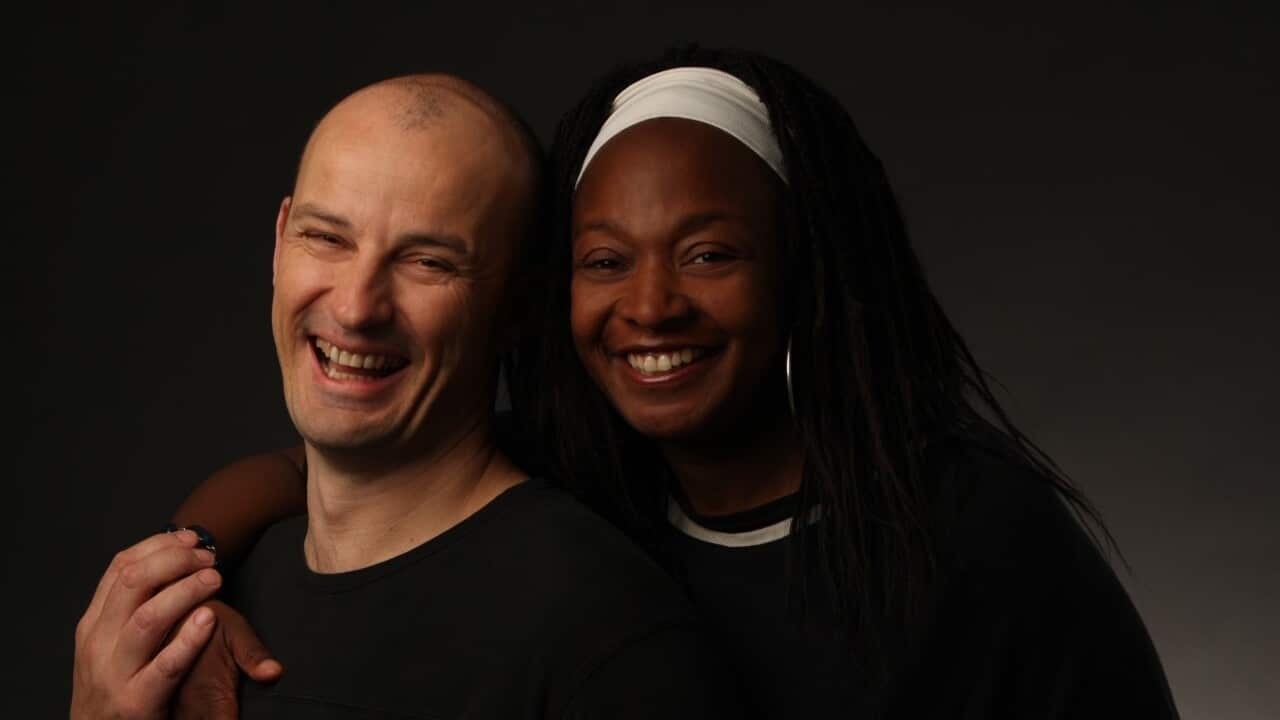This article contains references to stillbirth and death. The content may be distressing.
Simon Waring and his wife Millsom lost their first child Ella Jade to stillbirth.
“We lost her completely out of the blue,” he told SBS Insight.
“Absolutely raw shock, no preparation.”
For the couple, the loss of Ella Jade brought out different grieving styles they had to work through together.
“I needed to talk. It's part of how I process things,” said Simon.
“For my wife, Millsom, it was the reverse. She actually didn't want to talk.”
“We actually had to negotiate or navigate our way through that because we had different styles.”
It was one of the first times Simon developed insight into the way grief can unfold. Sadly, it would lay what he describes as the ‘foundation’ for what their family would face in the following years.
Losing a son to cancer
A few years later, Simon’s 14-month-old son Marmaduke was diagnosed with cancer.
As a family, they threw everything into treating him, and within a few years Marmaduke looked like he was in the clear. Three months later, in an effort to relax and take a deep breath, the family took a holiday to Byron Bay on the NSW north coast.
“At that point, my wife found a lump on her breast,” he said.

Simon's wife Millsom was diagnosed with cancer shortly after her son Marmaduke.
“I remember it was almost hard even to put that into words, to say he's gonna die,” said Simon.
Their conditions both quickly deteriorated and as a family, they were forced to confront and juggle two terminal diagnoses.
Millsom and Marmaduke died within weeks of one another.
Millsom passed away first. Her death came on suddenly, with little time to prepare. In some ways, Simon felt he didn’t get the goodbye he had hoped for.
“We didn't have enough plans in place. We wanted to have her at home. We wanted her to die at home surrounded by everybody.”
Constructively, he decided to channel the lessons he learnt in an effort to provide his son with the best death possible.
Preparing for death
Three days after Millsom died, Simon and his family brought Marmaduke home from hospital.
After his wife's death, Simon wanted to take his son home to be in a loving and comfortable environment.
For the next five weeks, Marmaduke spent the remaining time at home in his bedroom, surrounded by everything in life he loved - his toys, his favourite colours and his brothers and sister.
“We just wanted him completely surrounded by love, almost a cocoon of love,” said Simon.

Marmaduke was 14-months old when he was first diagnosed with cancer.
“We didn't want to communicate stress or fear to him.”
“Every day was like an extra day. We just decided to enjoy every single moment.”
Because of this, Marmaduke was able to live out those final weeks feeling like he was still just a kid.
“He woke up in the morning and he just wanted to live. Literally, he wanted fun. He wanted mischief. And so, he demanded that we be present for him. And so that's what happened,” Simon told Insight.

Millsom and her son Marmaduke.
“I realised that they said a lot of the houses they go into, most if not everyone is in denial,” he said.
Palliative care physician Professor Meera Agar says communication around death is pivotal when caring for patients facing end of life, but is something which can often be put to the side in favour of treating a patient’s physical health.
“I always laugh because, as a palliative care clinician I have to go for my annual resuscitation training,” she told Insight.
“We all have our CPR training up to date, but there's no annual communication training.
“The thing that I do in my day-to-day work every day, with every person, is communicate.”
For Simon, talking about death is critical.
“I have young children growing up and I recognise that how a child processes grief at four, may change at 10 may change at 16. You need to be open and ready for that conversation,” said Simon.
I think even the conversations I have now or being involved in documentaries about death, and end of life, it's important.”
Readers seeking crisis support can contact on 13 11 14. Other services include and which provides confidential support on 1300 845 745.





